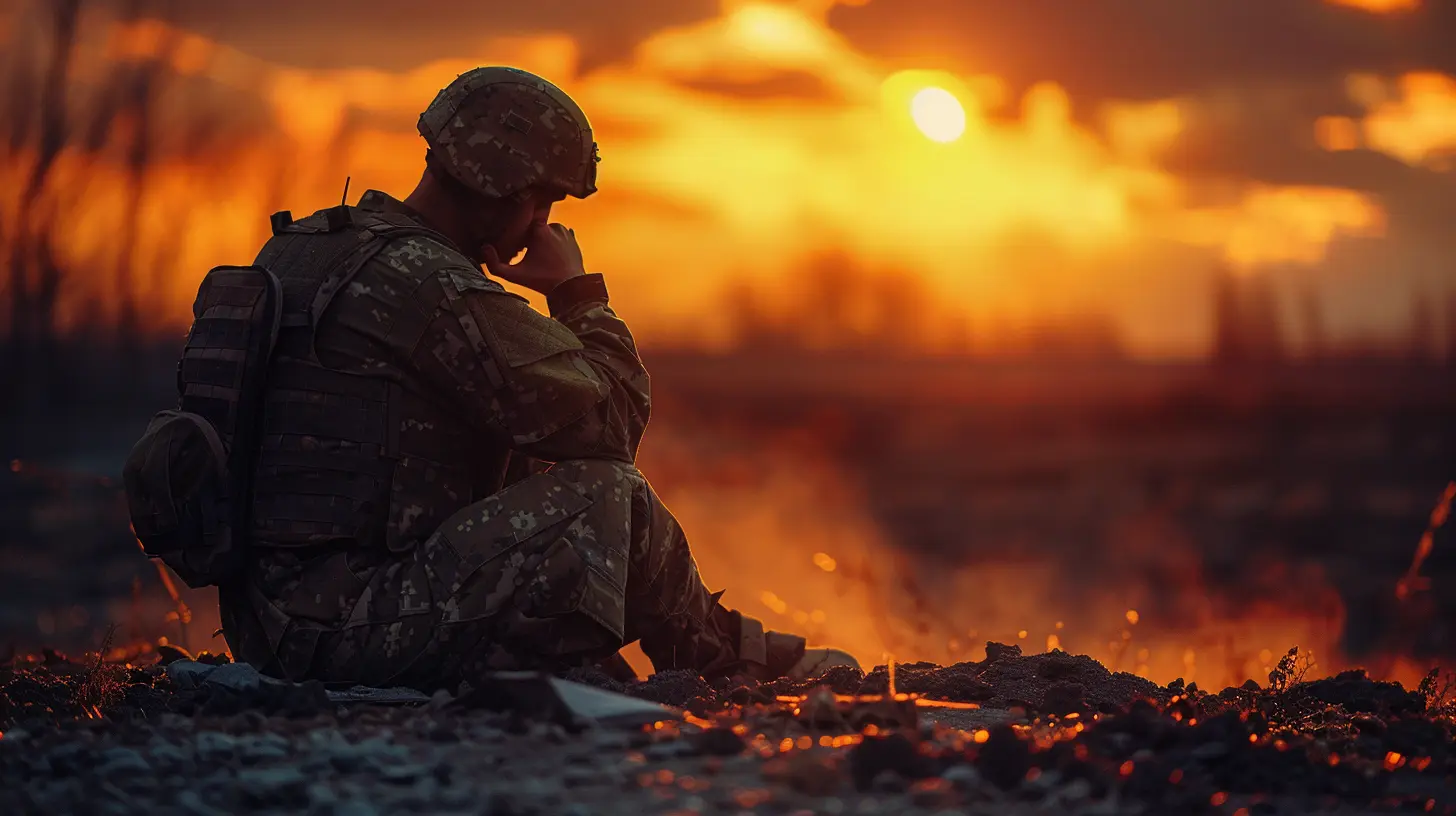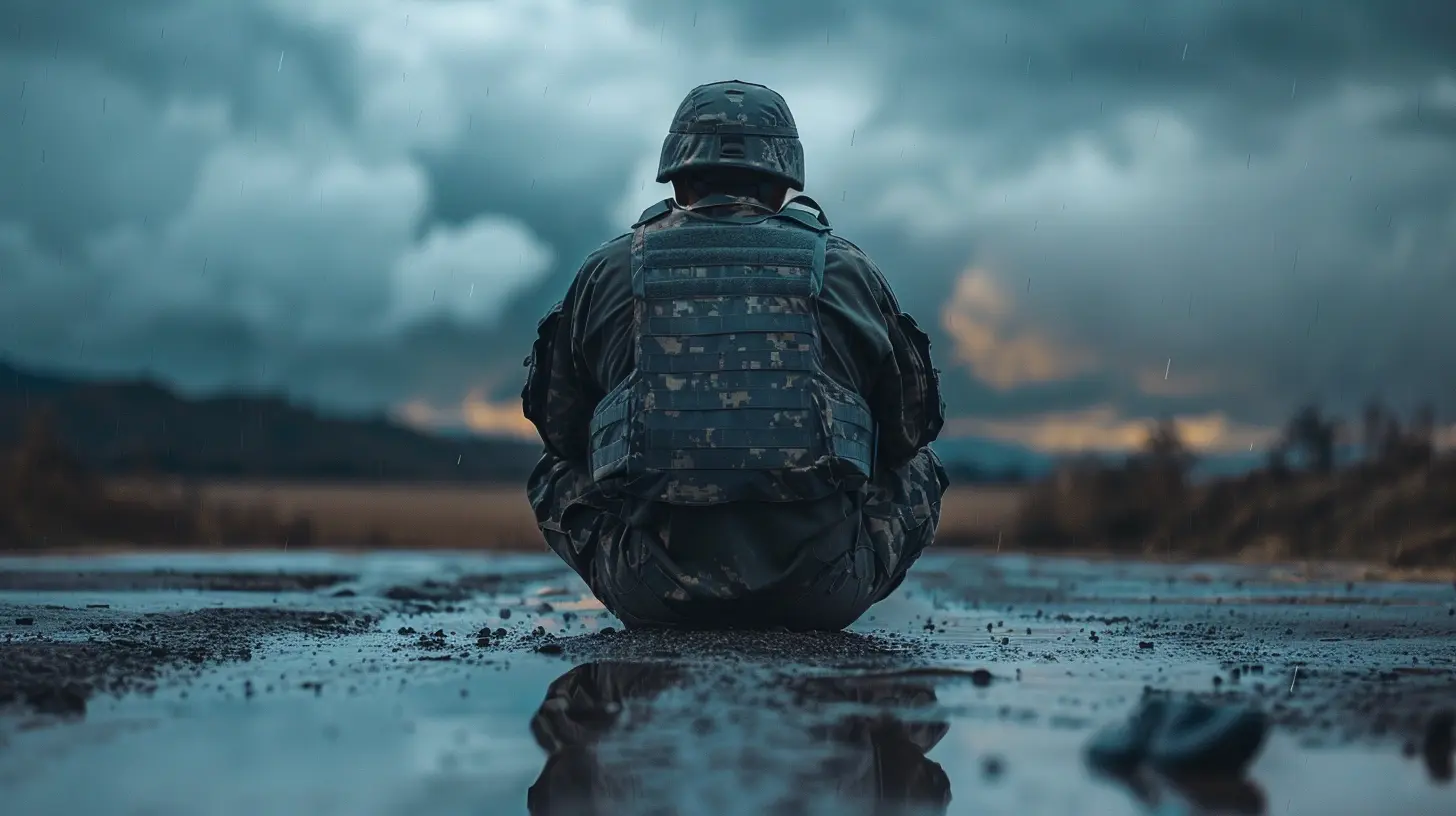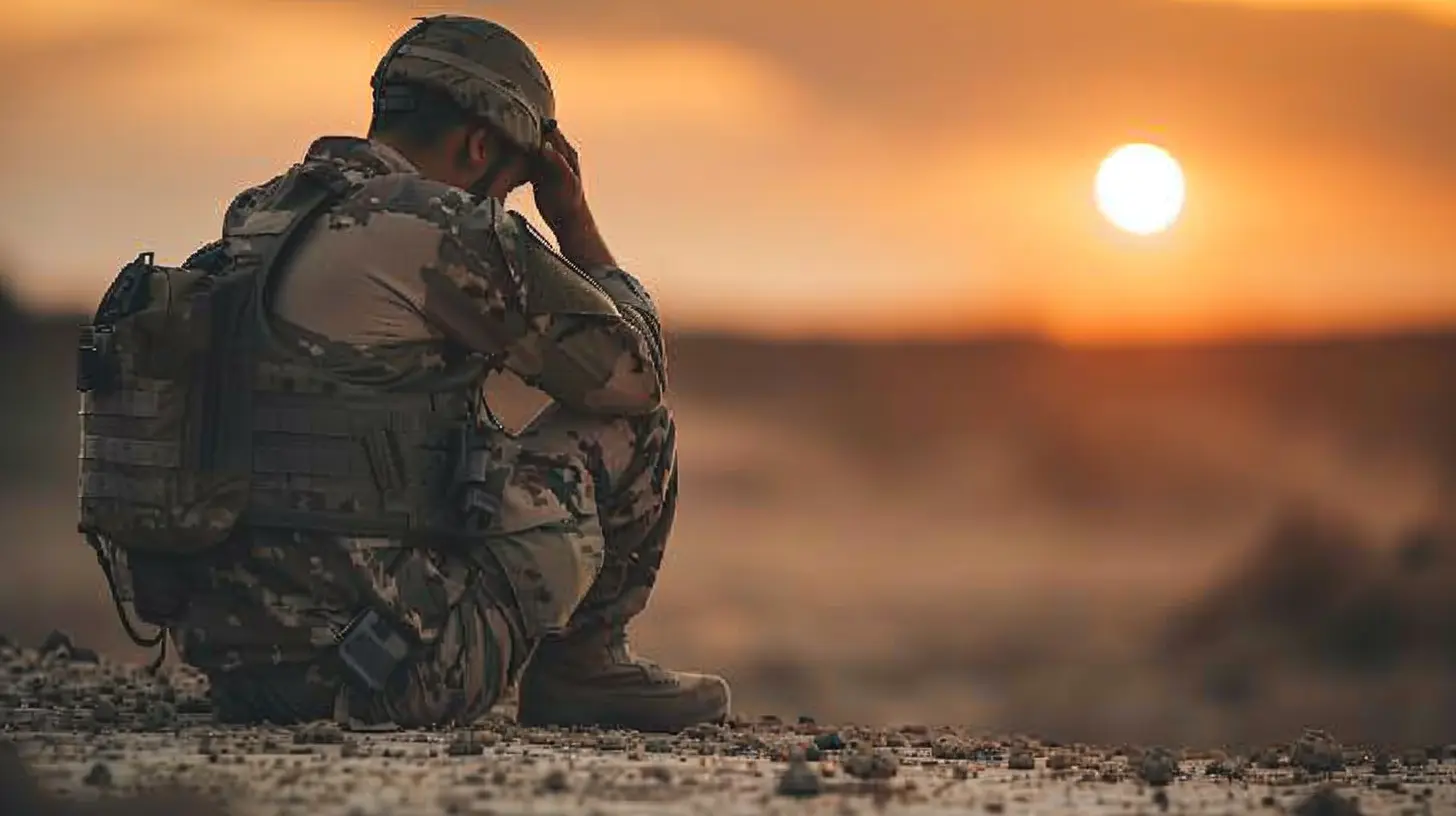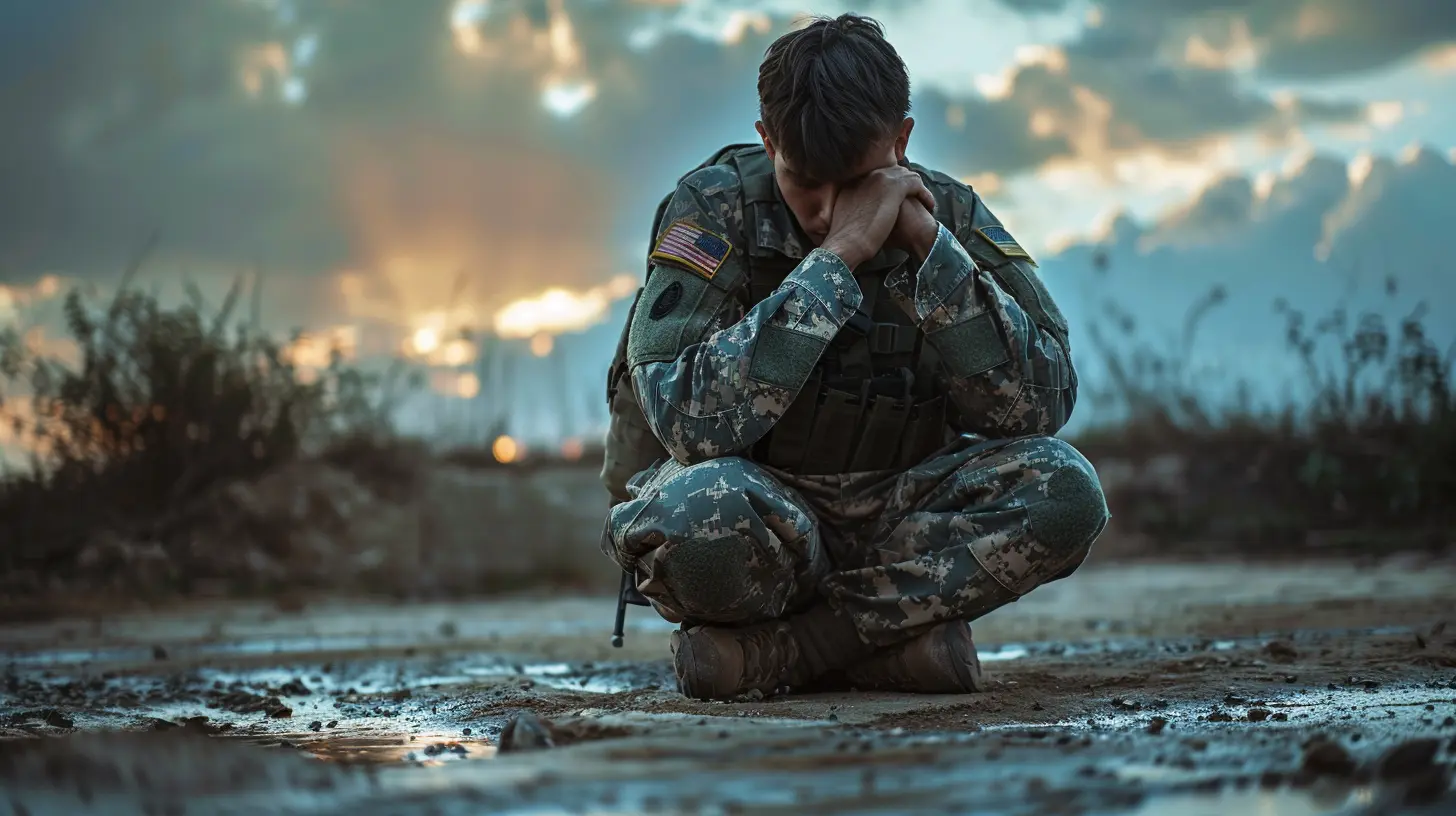Mental Health Stigma in the Military: Breaking Down Barriers for Veterans
21 May 2025
Mental health is just as important as physical health, yet for many veterans, getting help feels like an uphill battle. There’s a deeply ingrained stigma in the military that often discourages service members from seeking the mental health support they need. Why? Because for decades, mental health struggles have been perceived as a sign of weakness.
But here’s the truth: seeking help is a sign of strength. It takes courage to acknowledge you need support and take steps to improve your well-being. It’s time we break down these barriers and create a military culture that values mental health just as much as physical readiness. 
The Weight of Stigma in the Military
The military prides itself on discipline, resilience, and bravery—qualities that are absolutely essential in high-pressure situations. However, this same culture often leads service members to believe they must be mentally tough at all times.Imagine a soldier who’s struggling with PTSD, depression, or anxiety. Instead of seeking help, they might hesitate, fearing that others will see them as unreliable, weak, or even incapable of their duties. This fear can be crippling and often leads to silence, isolation, and worsening mental health conditions.
The stigma isn’t just personal; it’s institutional. Many service members worry that opening up about mental health struggles could affect their career, security clearance, or reputation. It becomes a silent battle—one that far too many veterans fight alone. 
The Dangerous Consequences of Ignoring Mental Health
The unwillingness to address mental health in the military has serious consequences. Veterans are disproportionately affected by mental health disorders, PTSD, and even suicide. Here’s what happens when mental health concerns are ignored:1. Increased Suicide Rates
Suicide among veterans is a national crisis. According to the U.S. Department of Veterans Affairs, an average of 17 veterans die by suicide every day. That number is heartbreaking. Many of these tragedies could have been prevented if veterans had access to proper mental health care without fear of judgment.2. Higher Rates of PTSD and Depression
Combat exposure, traumatic experiences, and prolonged stress take a toll. One in five veterans who served in Iraq or Afghanistan experiences PTSD. Yet, many don’t get help because they fear being seen as weak by their peers or leadership.3. Substance Abuse as a Coping Mechanism
When veterans feel they can’t talk about their struggles, many turn to alcohol or drugs to silence the pain. This leads to addiction, broken relationships, and further mental and physical health issues.4. Difficulty Transitioning to Civilian Life
For those leaving the military, adjusting to civilian life can be challenging, especially without the right support. Navigating new jobs, family expectations, and personal struggles becomes even harder when untreated mental health conditions lurk beneath the surface.
Why Veterans Avoid Seeking Help
Understanding why veterans don't seek help is the first step toward change. Here are some of the biggest challenges they face:1. Fear of Career Consequences
Many service members worry that admitting to a mental health struggle will damage their careers. They fear being passed over for promotions, losing security clearances, or even being discharged.2. Cultural Conditioning
From day one, military training instills a “tough it out” mentality. While this mindset is crucial in combat, it becomes a major obstacle when dealing with mental health issues. Admitting to struggles seems to go against everything they’ve been taught.3. Lack of Confidentiality
Some veterans fear that if they talk to a mental health professional, their struggles will be reported to their superiors. This concern keeps many from reaching out for help, even when they desperately need it.4. Mistrust of the System
Many veterans feel that the military and VA healthcare systems don’t prioritize mental health or that seeking treatment will just lead to more red tape. This mistrust discourages them from accessing the care they deserve.
How We Can Break the Stigma and Support Veterans
The good news? Change is possible. The stigma surrounding mental health in the military can be broken—but it requires effort on multiple fronts.1. Normalize Mental Health Conversations
Leaders at every level must foster a culture where mental health is openly discussed. When officers and senior enlisted personnel speak about mental wellness and share their own experiences, it encourages others to do the same.2. Improve Access to Confidential and Effective Care
Veterans need easier, stigma-free access to mental health care. Telehealth services, confidential counseling, and peer support groups can make a huge difference. If veterans feel safe discussing their struggles, they’ll be more likely to seek help.3. Train Leaders to Recognize Signs of Struggle
Commanders and unit leaders must be trained to spot the signs of mental health struggles. Instead of punishing or ostracizing those who need help, leadership should support and guide them toward the necessary resources.4. Promote Peer Support Programs
Nobody understands military life like fellow veterans. Peer support programs connect struggling service members with those who’ve walked the same path. Having someone who truly gets it can be life-changing.5. Reinforce That Seeking Help Is a Strength, Not a Weakness
Military personnel are encouraged to exercise, eat well, and take care of their bodies. Mental health should be treated no differently. It’s time to redefine strength—not as enduring alone, but as having the courage to seek help when needed.Veterans Deserve Better: Let’s End the Stigma
The mental health stigma in the military has cost too many lives, ruined too many careers, and led too many veterans to suffer in silence. It’s time for a cultural shift—one where seeking mental health care is seen as an act of bravery, not weakness.If you're a veteran struggling with mental health, know this: You are not alone. You are not weak. And you deserve support.
To those currently serving, veterans, and civilians alike—let’s stand together to break down these barriers. The more we talk about mental health openly, the closer we get to creating a military culture where every service member and veteran feels supported, valued, and empowered to seek the help they need.
all images in this post were generated using AI tools
Category:
Mental Health StigmaAuthor:

Ember Forbes
Discussion
rate this article
2 comments
Dominic White
Together, we can dismantle stigma and empower veterans to embrace their mental health journeys!
May 22, 2025 at 3:41 AM

Ember Forbes
Absolutely! Together, we can create a supportive environment that encourages veterans to seek help and prioritize their mental health.
Kevin Sheppard
Addressing mental health stigma in the military is crucial for supporting veterans. Open discussions and accessible resources can empower service members to seek help, fostering a healthier transition to civilian life and overall well-being.
May 21, 2025 at 3:43 PM

Ember Forbes
Thank you for your insightful comment! Open discussions and accessible resources are indeed vital in breaking down stigma and supporting veterans in their transition to civilian life.


